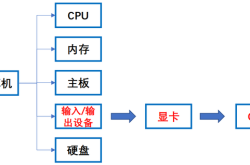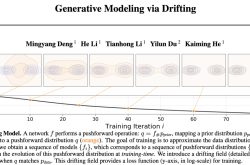Musk Again Demands to Stop OpenAI's 'Illegal' Transition to Profit-Making Model
![]() 12/05 2024
12/05 2024
![]() 476
476
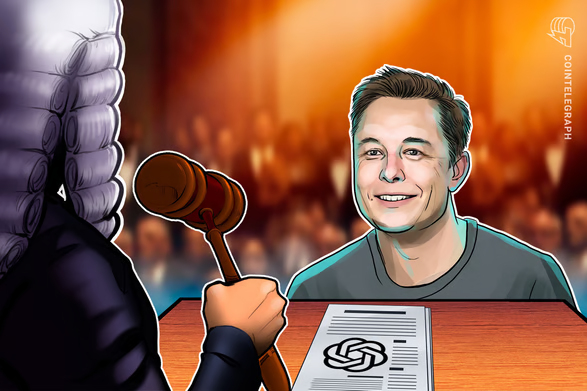
Editor: Yuki | ID: YukiYuki1108
Elon Musk recently not only questioned the 'predatory cooperation' between OpenAI and Microsoft but also proposed a motion to prevent OpenAI from transforming into a for-profit enterprise, fiercely criticizing its alleged anti-competitive behavior. Musk, a pioneer in the field of artificial intelligence, has deep ties with OpenAI. As a co-founder and early board member of OpenAI, he stepped down in 2018 but later pointed out that the company was on the wrong path.
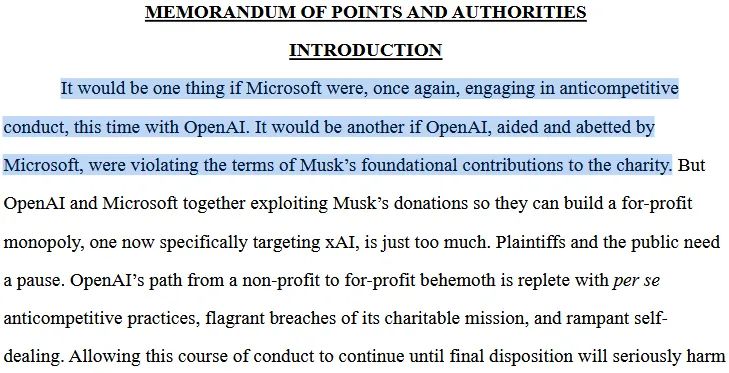
OpenAI's core value of originally promising non-profit has begun to change, prompting Musk to pay attention to its anti-competitive, blatant violation of charitable missions, and self-dealing behavior. In his motion submitted to the U.S. District Court for the Northern District of California, he detailed the 'predatory practices' of OpenAI and Microsoft. The cooperation between the two companies has enabled them to control almost the entire generative AI market, accounting for nearly 70% of the market share. Musk bluntly pointed out that Microsoft and OpenAI are consolidating their dominance by cutting off investment channels for competitors and gaining access to competitively sensitive information over the years.
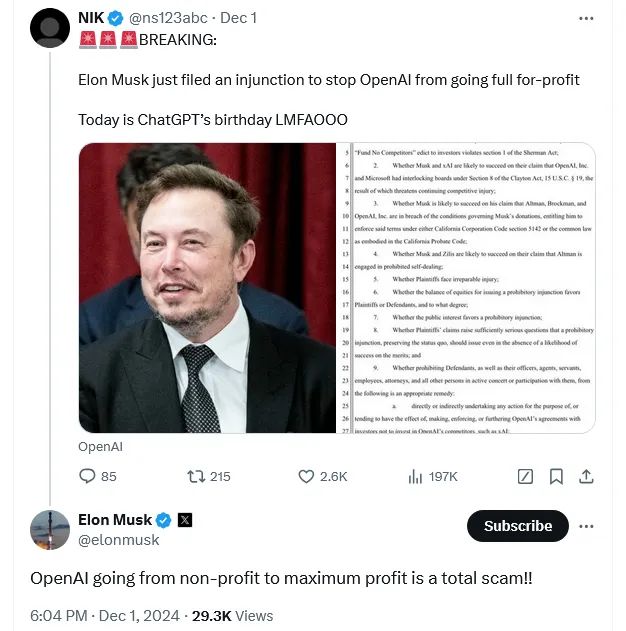
However, this is not the only criticism Musk has of OpenAI. He also expressed support for xAI, believing that xAI is a victim of OpenAI's anti-competitive behavior. He firmly believes that allowing this situation to continue will not only harm companies like xAI but also raise public concerns about the 'hasty' and 'unsafe' nature of increasingly prevalent AI products.
In response to such accusations, OpenAI firmly stated that although the company has transitioned to a for-profit model, its core remains non-profit, and the newly established for-profit subsidiary will ensure fundraising and hiring top talent. They emphasized that these tasks are still managed under the guidance of the non-profit organization. Facing Musk's motion, an OpenAI spokesperson bluntly pointed out, 'Elon's repeated attempts are still full of baseless complaints.'
They firmly believe that Musk's complaints are unfounded and should be dismissed. Prior to this, OpenAI had publicly released Musk's 2015 email in March, which supported the company's search for substantial funding to compete with companies like Google and Facebook. When Apple planned to integrate ChatGPT into its products, Musk even threatened to ban the use of Apple devices in his own companies. Musk's motion and remarks undoubtedly caused a huge uproar in the tech industry. His passion and perseverance for AI are admirable, and his actions have undoubtedly brought more attention and thought to this field.
Behind all this lies profound reflection and discussion on technology, business, ethics, and public welfare. What has sparked heated debate is how the conflict between Musk and OpenAI will affect the tech industry. This incident is not just about competition between two companies but also involves the future development of AI technology, innovation in business models, and ethical considerations. Musk's motion is not only a challenge to OpenAI but also a wake-up call to the entire tech industry. It makes people think about how to maintain attention to public welfare and adherence to moral standards while pursuing technological innovation and commercial interests.

